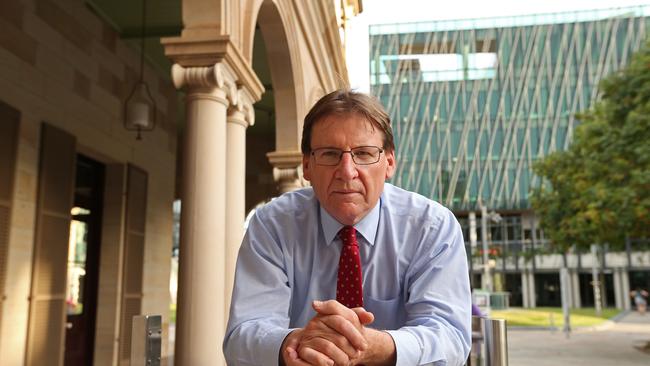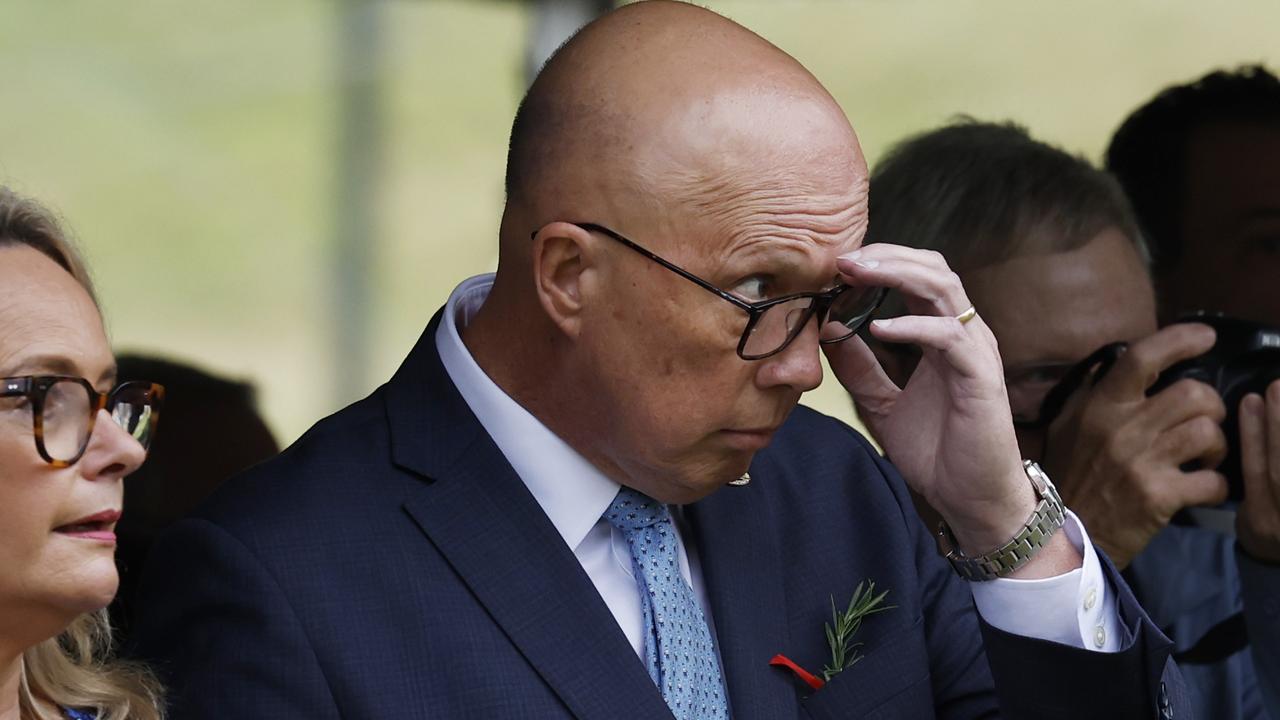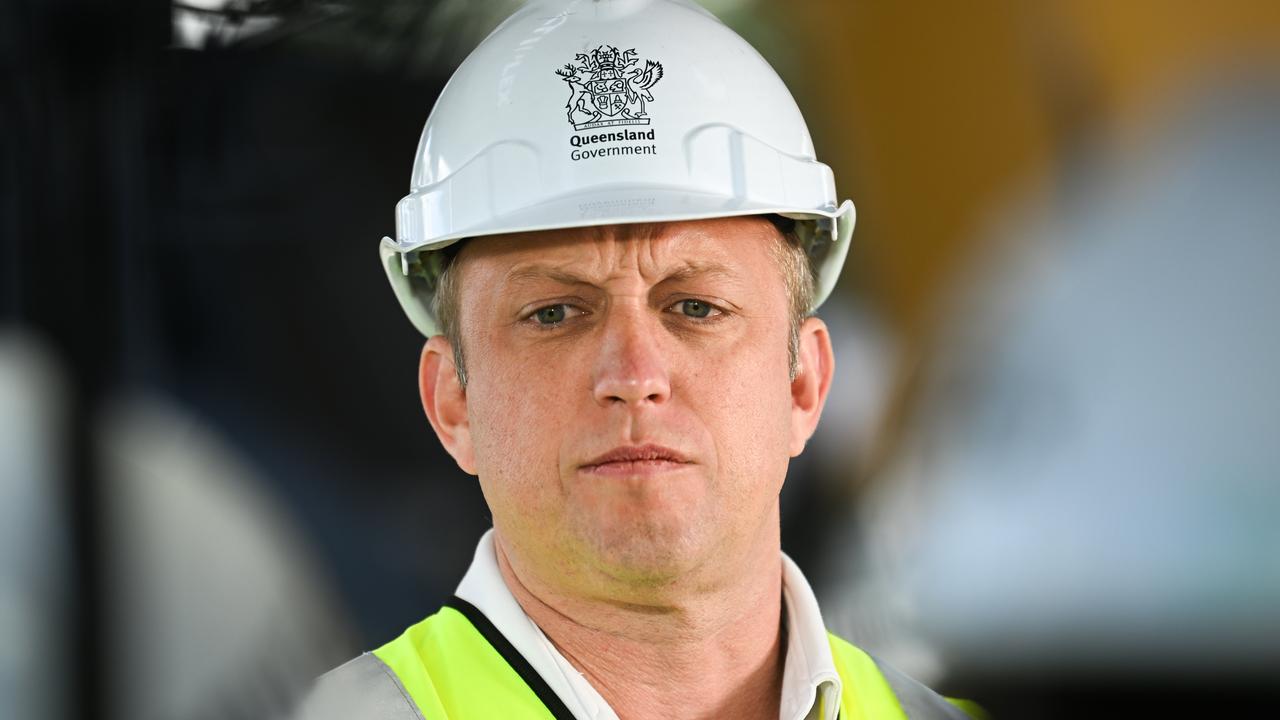Qld corruption watchdog all bark and no teeth
The battle to expose corruption in the public service is, paradoxically, often blocked by the very watchdog agency set up to investigate it, writes Des Houghton.

Opinion
Don't miss out on the headlines from Opinion. Followed categories will be added to My News.
I think we all agree the Crime and Corruption Commission does some fine work in the areas of organised crime.
But the CCC has failed lamentably to uncover wrongdoing in the public service and State Government corporations more generally. Its investigations drag on for months, sometimes years, and come to nothing.
The watchdog has no teeth. Or, more correctly, it rarely sinks in the teeth, despite a lot of barking. When it began as the Crime and Misconduct Commission it was a rottweiler. Now it is a poodle.
I blame the CCC’s ludicrous devolution policy, where a valid complaint from a public service whistleblower is referred back to the very department chiefs accused of corruption or wrongdoing or hiding corruption and wrongdoing. So valid allegations of serious misbehaviour are tipped into a deep, dark well from where they are very unlikely to ever again see the light of day.
In his “Let the Sun Shine In” report into the lack of State Government openness and accountability, Peter Coaldrake said the CCC was sometimes ungenerously referred to as Australia Post. This was because it received complaints but quickly passed them on without taking any ownership of investigations.
Back in the workplace investigations can take months, even years and the complainants suffer reprisals.
State Government whistleblowers are often frozen out or paid off.
In a recent case a senior State Government ethical standards unit figure was sent packing with a sizeable payout – but only after agreeing to sign a confidentiality agreement prohibiting him from discussing his grievances.
How often does this happen?
Greg McMahon is an old accountability campaigner who believes he has a solution.
McMahon, 73, is secretary of the Queensland Whistleblowers Action Group that last week called for the establishment of an independent body to oversee whistleblower protections and provide a more rigorous assessment of their complaints.
McMahon’s group is made up of some very interesting ex-cops academics and others who believe a new agency is needed to navigate a “complex, outdated and inconsistent system”.
McMahon says it should have sweeping powers to veto decision-makers in the CCC and the office of the Queensland Ombudsman who chose not to investigate complaints.

McMahon told me got the idea for a new agency from a similar body set up in America in the late 70s.
The United States Office of Special Counsel is a powerful independent federal investigative and prosecutorial agency specifically designed to protect whistleblowers, and others.
It also has the power to investigate what the CCC will not – abuse of power, gross waste of public funds and gross mismanagement.
McMahon, a retired civil engineer and water expert who worked in state and federal governments, says whistleblowers invariably face reprisals from speaking out.
“Whistleblowers are not protected and quickly forgotten,” he said.
“Whistleblowers lose their jobs, their careers and their reputations – and sometimes their marriages. And they suffer financially.”
The Whistleblowers Action Group was not seeking judicial powers, McMahon said.
But it should have the power to refer matters to the Chief Justice of the Supreme Court and the Speaker of Parliament to determine whether an investigation was conducted properly, fairly and thoroughly.
“This would add another layer of protection for whistleblowers, who play a vital role in our democracy by maintaining the integrity and accountability of public and private institutions.”
The action group’s call for an overarching review is timely.
Meanwhile, the Palaszczuk Government’s review into the Public Interest Disclosure Act is due any day. The so-called PID covers the disclosure of information about wrongdoing in the public sector and has been roundly criticised by whistleblowers who claimed PID status to no avail.
The review by retired Supreme Court judge Alan Wilson was extended until June 19 because of a flood of submissions. The review of the Act was recommended by Coaldrake in his report.
McMahon said the PID Act should be extended to protect journalists reporting on matters disclosed by whistleblowers.
“The (current) Act facilitates the new-century tactics by entities, administrations, jurisdictions and parliaments to cover up corruption and to silence the disclosures and the whistleblower,” he said.





